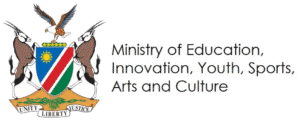Towards a paradigm shift in conceptualizing multilingual models of language education throughout Africa: A review of literature
Keywords:
multilingual education, language education models, language planning, policyAbstract
This paper aims to critique the monolingual characterization that has informed language planning and policy throughout Africa. This entails an exploration of the utility of certain language planning and policy pronouncements, as well as models arising out of these. The paper contends that one of the major drawbacks of current policy is that it is still based on Western and colonial notions of multilingualism, which basically involves multiple monolingualisms. Further, the paper offers a critical review of the theory of multilingual education in Africa. It draws on the notion of multilingualism as social practice to critique post-colonial language planning and policies in Africa. In turn, the paper faults monolingual biases in the notions and models used to describe and promote multilingualism in Africa, which mirror descriptions of the language situation in Western socio-cultural contexts. Furthermore, the paper explores the models of language education implemented in Africa. The paper unpacks the concepts and characteristics of bilingual education, ranging from subtractive and additive arrangements to the newly proposed recursive and dynamic models including the heteroglossic interpretation of bilingual and multilingual communicative practices. Moreover, the paper underscores the different Western models of bilingual education that have not worked in Namibia before, followed by a discussion of the kind of models that Namibia should adopt. It emphasizes the prospects for linguistic repertoire-based multilingual education models in Africa. The paper critiques the monolingual habitus, and advocates for a repertoire-based multilingual models for Africa. If multilingualism is to be recognized as a key model which may be followed in multilingual contexts and, as such, a crucial element in education, then we need to find ways of developing and introducing an explicit and critical pedagogy in our schools, to foster the development of multilingual and critical multilingual literacy. The paper begins with the reconciliation of the main theoretical models with particular programme types and explores aspects of bilingualism from many sociolinguistic and psycholinguistic perspectives. It highlights the distortions in the conceptualization of multilingualism and multilingual education, and what it entails in Africa’s socio-cultural contexts which may be attributed to the monolingual biases in the notions and models used to describe and promote multilingualism in Africa. It suggests a move towards greater flexibility, i.e. towards heteroglossic multilingualism. Finally, the paper recommends a paradigm shift in conceptualizing multilingual education models in late modern globalized societies in Africa.
Downloads
Published
How to Cite
Issue
Section
License
Copyright (c) 2019 MoEAC, National Institute for Educational Development (NIED)

This work is licensed under a Creative Commons Attribution 4.0 International License.






